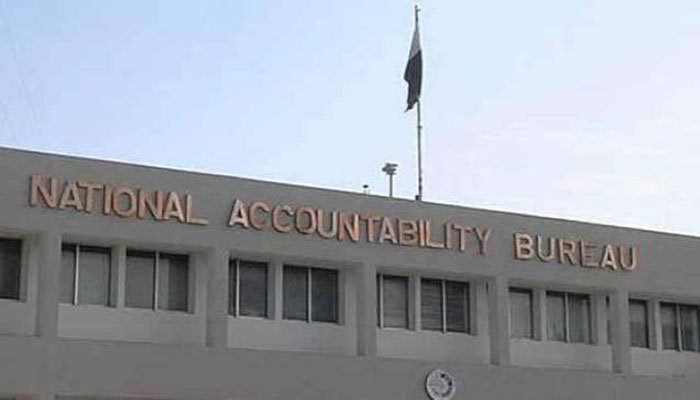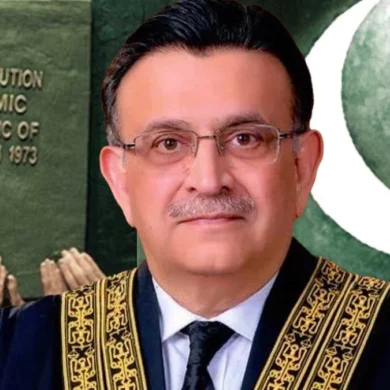The federal government has deprived the Supreme Judicial Council (SJC) of the power to remove the National Accountability Bureau (NAB) head and authorized the president to do so for the third time in less than a month by amending the National Accountability Ordinance (NAO).
The Third Amendment of the National Accountability Ordinance 2021, which was promulgated on October 31, went into effect immediately, with the amendments presumed to take effect on October 6, the date the second amendment was promulgated.
Law Minister Barrister Dr. Farogh Naseem said, “The reason to bring amendments to the ordinance was to provide clarity as after the second amendment a number of provisions were being misinterpreted by different quarters.”
The adjustments were made to the legislation after Prime Minister Imran Khan approved them during a meeting on October 27. It was attended by:
- Minister for Planning and Development Asad Umar.
- Information Minister Fawad Chaudhry.
- Human Rights Minister Dr Shireen Mazari.
- Defense Minister Pervez Khattak.
- Adviser to the Prime Minister on Accountability Mirza Shahzad Akbar.
- Law minister.
Khalid Jawed Khan, the Attorney General of Pakistan (AGP), was unable to attend the meeting because he was in Karachi at the time, but he expressed a different opinion on the law, stating that no person-specific legislation should be enacted and that the executive should not be given the power of removal.
“It seems that the other opinion, instead of the one taken by the AGP during earlier meetings, prevailed,” a senior counsel said on condition of anonymity, adding that the third amendment has also caused confusion because it is unclear whether the president will act on the prime minister’s advice for the removal of the NAB chairman if the removal procedure has been taken outside the SJC’s purview.
The most notable change made by the government in the new ordinance is the procedure for removing NAB Chairman Javed Iqbal by amending Section 6 (b) (v).
The provision suggests that the chairman will serve for four years on the terms and circumstances set by the president and that he or she may be removed by the president on the same grounds as a Supreme Court judge.
Section 6(b)(v) of the second amendment proposes that the NAB chairman be appointed for a four-year term on the terms and conditions established by the president. The chairman may not be removed from office unless on the reasons set forth in Article 209 of the Constitution for the removal of a Supreme Court judge in the manner and by the forum set down by the Supreme Judicial Council.
Farogh Naseem admitted that, while the SJC’s standard for removing a superior court judge would remain applicable in the current scenario under the third amendment, the forum in this regard would be the president, not the SJC.
The SJC meeting presided over by Chief Justice of Pakistan (CJP) Gulzar Ahmed, took up a 2019 reference filed by Advocate Chaudhry Muhammad Saeed Zafar against the NAB chairman in the wake of a leaked video clip depicting an alleged clandestine and illicit relationship between Javed Iqbal and Tayyaba Gull, an accused in a NAB investigation.
The SJC has the authority to commence procedures against judges of the superior courts, the Auditor General of Pakistan, and the Federal Ombudsman under the statutes, however, the original NAO made no provision for the removal of the NAB chairman.
The third amendment also suggests that all proceedings, including inquiries, or trials, initiated under this ordinance prior to October 6 in relation to an offense under the Anti-Money Laundering Act 2010 will be dealt with in accordance with the ordinance.
Furthermore, the courts under the ordinance shall have jurisdiction to enforce the Anti-Money Laundering Act in any procedure, including a referral or trial.
Similarly, a modification to Section 16 of the ordinance has been made to clarify that the current method of recording evidence will remain until electronic facilities are installed. If the evidence cannot be recorded electronically due to technical or other reasons, then the evidence will be recorded according to the procedure in place prior to the installation of electronic facilities.
In this regard, the law ministry issued a clarification on October 18 in a letter to all administrative judges of accountability courts, advising them to continue recording evidence in the way it was recorded before the third amendment until the electronic facilities are installed.
Furthermore, the letter stated that Supreme Court had concluded in a 2002 decision that, in the lack of a system for recording evidence, the court might establish its own procedure in such a way that no prejudice was created to either party.



